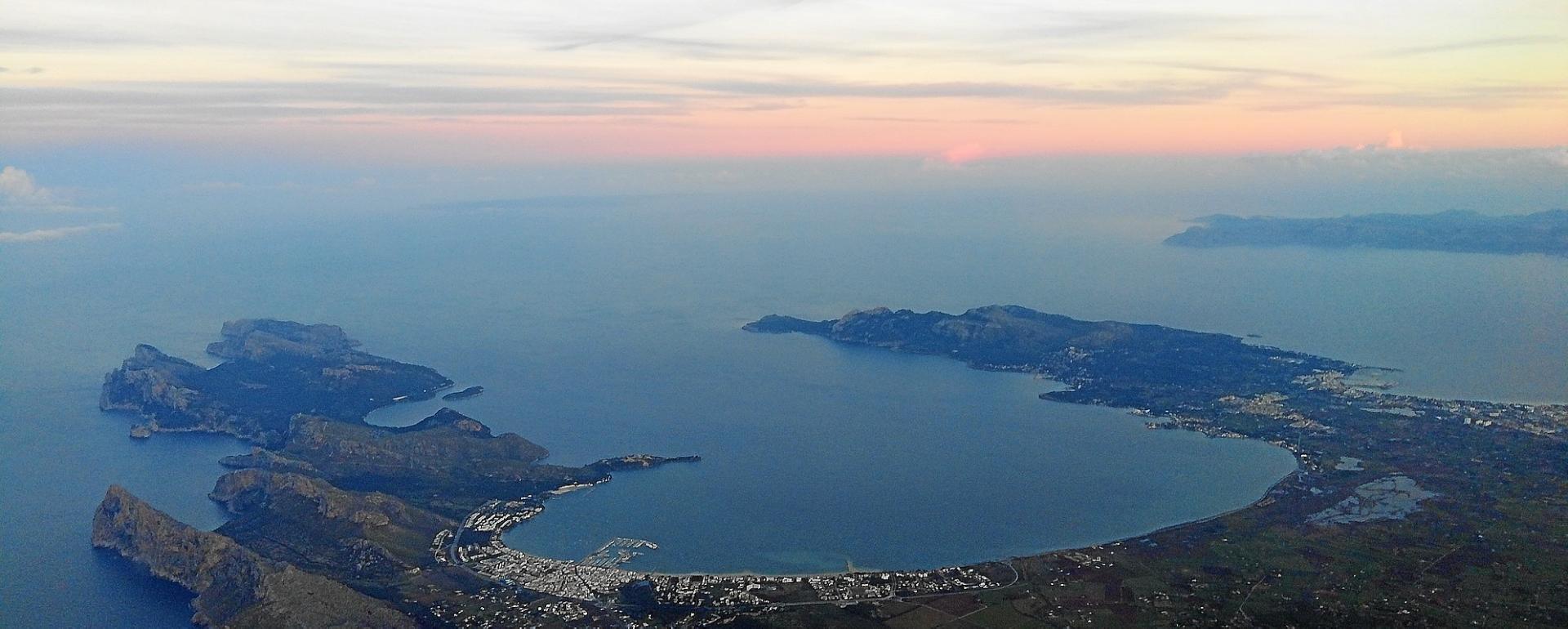Local marine environmentalists Arrels Marines first really came to public attention in March 2022 when they presented a report on the condition of the Bay of Pollensa that had been called for by Pollensa Town Hall. This report caused something of a stir, as it concluded that parts of the seabed were a dead zone.
It was possible to interpret this in one of two ways - that the seabed was literally dead or that it was littered with dead waste. Both were in fact relevant. The report calculated that there were up to 2,875 permanent items of dead waste, e.g. tyres that had been filled with cement to act as anchors - illegal anchors. It also considered the impact over time of quarry sand for the main beach in Puerto Pollensa. There were areas of mud or sludge that would be most unlikely to recover in the short term. Sediments had been modified. There was significant degradation and a loss of biodiversity.
In December 2021, the founder of Arrels Marines, Josep Vives, spoke about the organisation's studies in the bay. He observed that Pollensa was one of the municipalities in the Balearics to have been most affected by human action (much of it at sea). The deterioration of marine ecosystems led him to state that the reality was "quite bleak". "This said, the bay is very large and all is not lost. But action has to be taken now." There had to be greater protection.
Only formed in 2020, Arrels Marines had swiftly become an important player in all the discussions about the bay, including that concerning wastewater contamination. And their voice has recently been heard in respect of concerns raised by the laying of the mainland electricity cable. Almost one thousand square metres of posidonia sea meadow could be affected. This was in itself a startling conclusion, given all the debate about the cable's entry point and specifically wanting to avoid posidonia; hence why the Bay of Alcudia with its far greater abundance close to shore was ruled out.
While most of their attention has been paid to the Puerto Pollensa area, last weekend Arrels Marines denounced the inaction in dealing with a boat that had sunk off Bonaire. There were highly polluting materials, such as lead and batteries. "It's a disaster. We have found a situation that exceeds what we had expected." Toxic substances from the wreck could irreversibly affect the area's marine ecosystem. It could all have been avoided, if the responsible authorities had acted prior to the storm that led to the sinking and immediately afterwards.
The secretary of Arrels Marines, Ignasi Cifre, was asked a few days ago about the cable. He argued that Spain's ministry for ecological transition should in fact be focusing on reducing energy consumption in the Balearics. "If not, there could be a third cable in fifteen years with all the impact this would entail."
As to the problems in the bay and in Puerto Pollensa specifically, he insisted that there must be control of discharges from boats of the illegal anchoring. The faecal contamination, he recognised, is being worked on, but in his view it remains a medium to long-term project.
In one respect, though, he was optimistic. "Over the past four years there has been a significant change in environmental awareness in Pollensa. Although awareness can take years to bear fruit, the most positive thing is that the environmental problems in the bay are now being recognised. This is unlike before, when they were denied and responsibilities were passed from one authority to another."


1 comment
To be able to write a comment, you have to be registered and logged in
I don’t know how the Govt or Red can justify the cable going into Pollença bay then trashing an area of outstanding beauty, passing through residential areas and causing major health concerns all to preserve a fraction of posidonia, when they can’t be arsed to keep the bays clean in the first place. Awful.